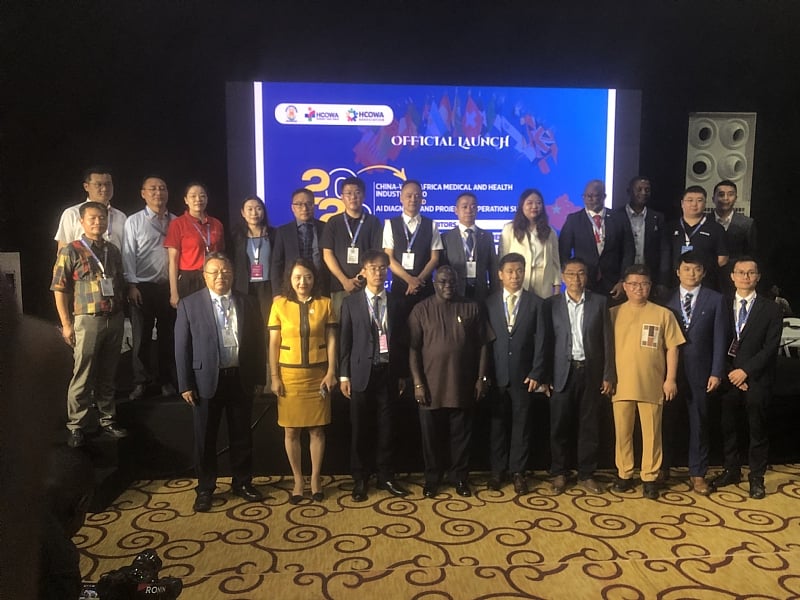Paragraph 1: Ghana’s Vision for AI-Powered Healthcare
Ghana is embarking on a transformative journey to integrate Artificial Intelligence (AI) into its healthcare system. This ambitious initiative aims to deploy AI-powered robots in hospitals and clinics nationwide, revolutionizing disease diagnosis and treatment delivery. The government envisions AI as a crucial tool to enhance healthcare accessibility, particularly in underserved rural communities, and ultimately improve patient outcomes. This forward-looking strategy reflects Ghana’s commitment to leveraging cutting-edge technology to address pressing healthcare challenges and establish itself as a medical technology hub in West Africa.
Paragraph 2: Collaborative Approach to AI Integration
Recognizing the multifaceted nature of this undertaking, Ghana’s government is advocating for a collaborative approach. This involves forging partnerships between public and private sectors, academia, and international stakeholders. The Chief of Staff emphasized the importance of joint efforts to achieve this ambitious goal, acknowledging that the government cannot single-handedly transform the healthcare landscape. By fostering collaboration, Ghana aims to pool resources, expertise, and innovation to effectively integrate AI into the healthcare ecosystem.
Paragraph 3: Investing in Human Capital Alongside Technology
While emphasizing the transformative potential of AI, Ghana’s leadership acknowledges that technology alone is insufficient. A parallel focus on human capital development is crucial. This includes investing in training and education for healthcare professionals, researchers, and students across the region. By empowering the human element alongside technological advancements, Ghana aims to create a synergistic environment where AI tools are effectively utilized and integrated into existing healthcare practices.
Paragraph 4: AI as a Complement, Not a Replacement, for Human Expertise
A key aspect of Ghana’s AI strategy is the understanding that AI-powered robots are designed to complement, not replace, the expertise of doctors and other healthcare professionals. This approach addresses potential concerns about job displacement and emphasizes the importance of human oversight in the application of AI technologies. The goal is to leverage AI to enhance the efficiency and accuracy of medical professionals, allowing them to focus on complex cases and patient interaction, ultimately improving the overall quality of care.
Paragraph 5: Addressing Healthcare Challenges and Bridging the Gap
Ghana’s pursuit of AI-driven healthcare is motivated by several key challenges, including a low doctor-to-patient ratio, which places significant strain on existing medical staff. AI is seen as a potential solution to bridge this gap by automating certain tasks, improving diagnostic accuracy, and increasing access to care, especially in remote areas. The initiative also aims to boost local medical technology manufacturing, reducing reliance on imported equipment and pharmaceuticals, and creating employment opportunities.
Paragraph 6: Building a Medical Technology Hub and Fostering International Collaboration
Ghana aspires to become a medical technology hub for West Africa. This includes establishing world-class medical facilities and fostering local production of medical equipment, pharmaceuticals, and AI tools. The initiative involves attracting international investment and collaboration, as demonstrated by the participation of Chinese manufacturers in the medical expo and the expressed interest in establishing local production facilities. This collaborative approach aims to create a sustainable ecosystem for medical technology development and manufacturing, ultimately benefiting Ghana and the wider West African region.














